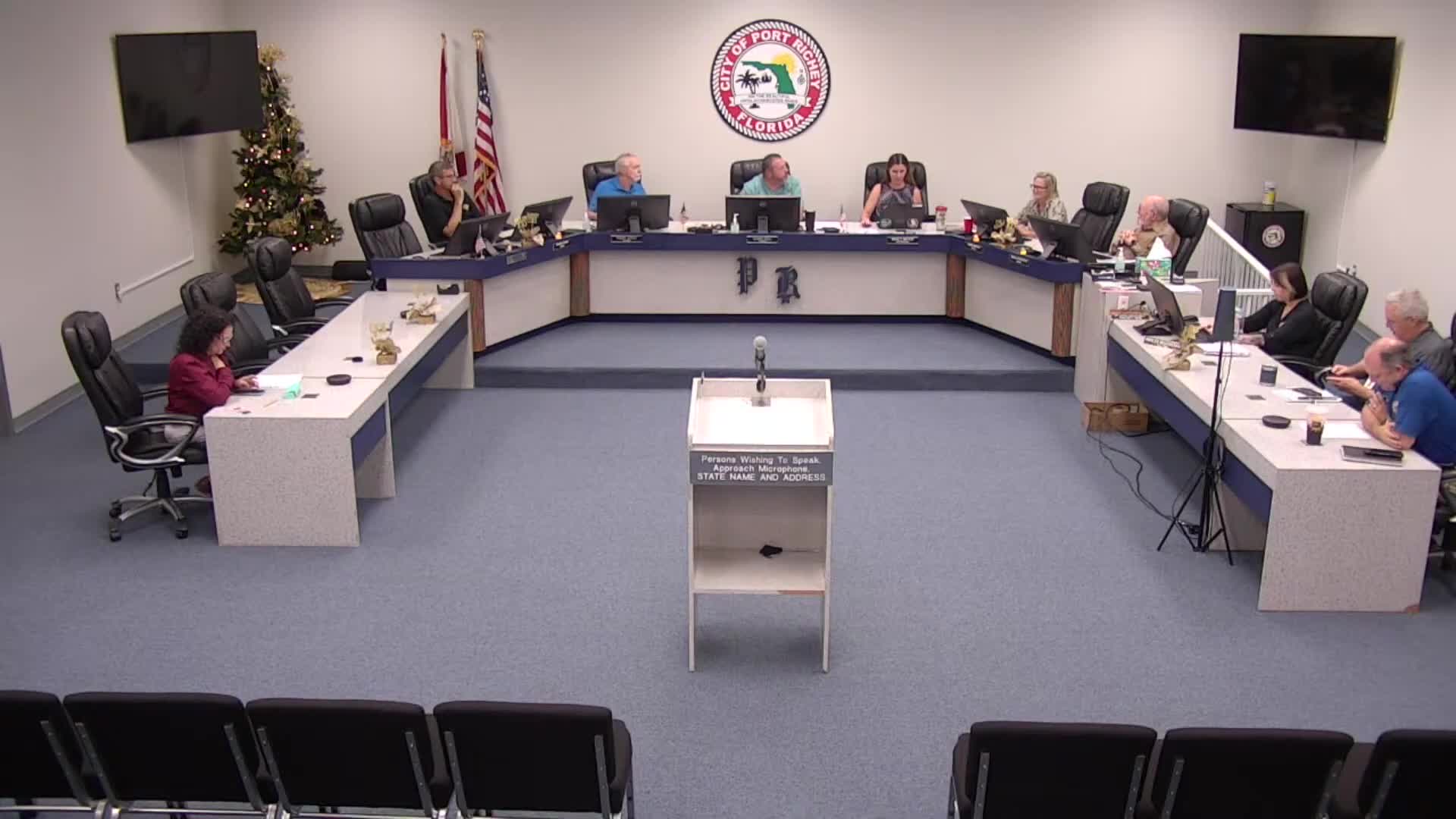Port Richey planners discuss waterfront boardwalk, overlay rules and easements
Get AI-powered insights, summaries, and transcripts
Subscribe
Summary
At its Oct. 14 meeting the Port Richey Planning & Zoning Board discussed how the Waterfront Overlay District (WOD) affects waterfront development, public access, setbacks, easements and the limits of city authority when property is privately owned or extends beyond the seawall.
PORT RICHEY, Fla. — The Port Richey Planning & Zoning Board spent much of its Oct. 14 meeting discussing how to protect a continuous public waterfront passage as private development resumes along the city's shoreline.
Board members and staff reviewed the Waterfront Overlay District's existing density limits and tools — including setback language, negotiated easements and planned-unit development (PUD) incentives — and emphasized that the city currently has no automatic right to require public passage across privately owned waterfront property.
The discussion centered on several practical points. The board noted the WOD contains a residential cap — "15 units per acre" — but said developers with parcels of five acres or more can seek a PUD to request higher density (board members said the code allows negotiated density increases up to 40 units per acre under a PUD). Board members also discussed setting a minimum waterfront setback tied to a required public easement, and using density incentives in PUD negotiations to secure public access.
Staff warned the board that building beyond the seawall introduces federal jurisdiction. "When you step outside the seawall and you build something, now we're talking about an Army Corps lease," a staff speaker cautioned, noting that any structure over the water may require U.S. Army Corps of Engineers approval or a lease.
Board members and staff discussed alternatives to unilateral authority over private property. One staff member, identified in the meeting as Matthew (staff member), said the city "would have to negotiate that easement with the property owner" and could not impose it by code without a separate eminent‑domain or acquision process. Board members repeatedly urged incentives — for example, additional density in exchange for public boardwalk easements — rather than uncoordinated mandates, and noted eminent domain would transfer maintenance and liability for docks and seawalls to the city.
The board also discussed logistical obstacles to a continuous boardwalk: existing private docks and marina ramps, Whiskey Joe's private beach, and gaps where properties have been rebuilt directly on the seawall (Hooters was cited as an example). The board noted the Metropolitan Planning Organization (MPO) currently lists a waterfront under‑bridge connection as an unfunded project on its list, and that right‑of‑way acquisition work is underway in a related MPO study.
Members agreed to flag the issue for City Council consideration. A council representative said they would take the board's concerns to council for direction, and staff said they would verify whether existing WOD language already contains the easement provisions the board discussed.
The board did not take a formal vote on a code change at the meeting; members left the topic with direction to bring the concept back to council for policy guidance and to ask staff to verify existing easement language and options for setback standards or PUD incentives.
